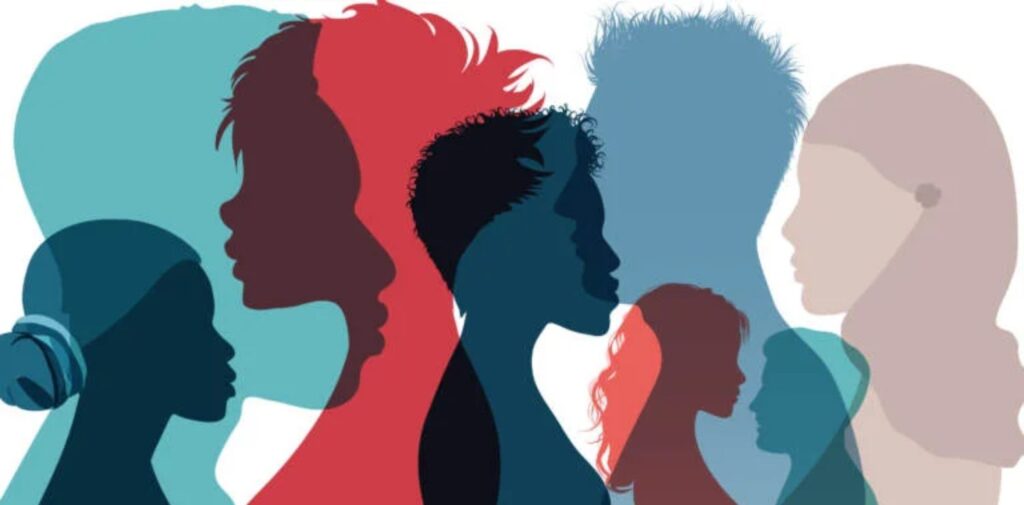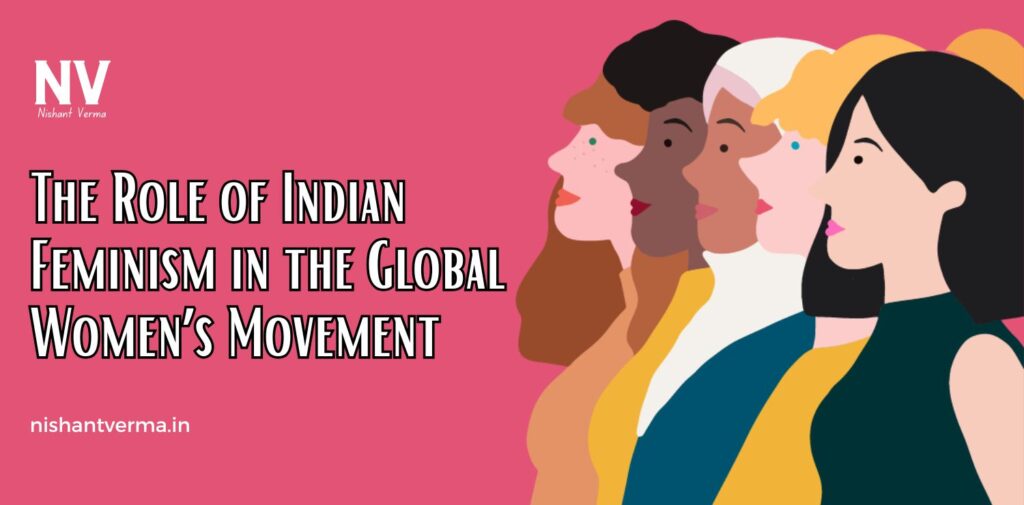Feminism, a movement advocating for gender equality and women’s rights, has evolved over time and gained global attention. From the United States to Europe, various forms of feminism have shaped societies, bringing about significant changes in laws, culture, and society. Indian feminism, with its unique history, context, and cultural challenges, has also contributed significantly to the global women’s movement. This article explores the role of Indian feminism in shaping global discussions on gender equality and how it has influenced feminist thought worldwide.
Historical Roots of Indian Feminism
Indian feminism can trace its roots back to the colonial era, when social reformers like Raja Ram Mohan Roy, Ishwar Chandra Vidyasagar, and others began advocating for the rights of women. During the 19th century, Indian women faced severe restrictions in many aspects of life—education, marriage, property rights, and personal freedom. These social reformers played a crucial role in bringing attention to the plight of women and started the process of challenging traditional gender norms. The social reform movement in India marked the beginning of the country’s feminist journey, laying the foundation for women’s rights in India.
In the 20th century, the feminist movement in India gained momentum, particularly during the struggle for independence. Women like Sarojini Naidu, Kasturba Gandhi, Kamini Roy, and others played pivotal roles in the freedom struggle, and their activism also highlighted the need for gender equality. However, after independence, Indian feminism started evolving in response to the country’s unique social, cultural, and political landscape. Issues like caste, religion, and class became critical elements of the feminist discourse, giving rise to intersectional feminism in India.

Indian Feminism and Intersectionality
One of the significant contributions of Indian feminism to the global women’s movement is the emphasis on intersectionality. Intersectionality refers to the interconnectedness of various social categories such as gender, caste, class, religion, and race, which create overlapping systems of oppression. In India, feminism cannot be understood without addressing the complexities of caste, class, and religious identities.
Indian feminist scholars, activists, and writers have highlighted that the experiences of women from different castes, communities, and economic backgrounds vary significantly. For instance, the struggles faced by a Dalit woman (a member of a historically marginalized community) differ greatly from those of an upper-caste woman. Indian feminists like B.R. Ambedkar’s work on the Dalit community and his advocacy for the rights of women, particularly Dalit women, have deeply influenced global feminist thought. Writers like Meena Kandasamy and Arundhati Roy have also shed light on the intersections of gender, caste, and class in their literary works, bringing attention to issues that were often overlooked in global feminist conversations.

The Impact of Indian Feminism on Global Discussions
Indian feminism has contributed significantly to global discussions on women’s rights, particularly in areas related to the family, marriage, and violence. In India, issues such as child marriage, dowry, female infanticide, and domestic violence have long been central to feminist discourse. Activists and organizations have worked tirelessly to address these issues, and their efforts have had a ripple effect across the globe.
The campaigns against dowry and female infanticide, for example, have caught international attention and sparked debates in countries with similar practices. Indian women’s movements have often been at the forefront of challenging patriarchal norms that condone violence against women. The global #MeToo movement, which gained significant traction in 2017, was inspired in part by similar movements in India, such as the “#IWillGoOut” campaign against sexual harassment and violence in public spaces. Indian feminist leaders like Tarana Burke and others have worked together to highlight the universality of violence against women, regardless of geographical location.
Indian Feminism and Global Solidarity
Indian feminism has also demonstrated the power of global solidarity. While feminism has diverse manifestations across the world, women’s movements in different countries have often found common ground in their struggle for equality. Indian feminists, in particular, have reached out to global feminist networks, participating in international forums, and bringing their unique perspectives to the table. Indian women have collaborated with feminists from Africa, Latin America, and the Middle East to create a truly global dialogue on women’s issues.
In this global network, Indian feminism has been instrumental in advocating for the rights of rural women, tribal women, and women from marginalized communities. India’s large population, its diverse communities, and its rapidly changing economy have made it a significant player in the global conversation about development, poverty, and gender inequality. Indian feminists have often used global platforms to advocate for policies that address the specific needs of women in the Global South, pushing for more inclusive and representative frameworks.

Challenges Faced by Indian Feminism
Despite its many contributions, Indian feminism faces significant challenges. Patriarchy in India remains deeply entrenched in both urban and rural areas, and cultural norms often prioritize male authority over women’s autonomy. Issues such as sexual violence, caste discrimination, and economic inequality continue to disproportionately affect women, particularly those from marginalized communities.
Moreover, the rise of right-wing politics and the promotion of traditional gender roles have posed significant threats to the feminist movement in India. There has been a growing backlash against women’s rights, with political leaders and social groups pushing for policies that limit women’s freedom and reinforce gender stereotypes.
Additionally, the feminist movement in India has often been criticized for its lack of inclusivity. While the urban, educated women’s movement has gained much attention, issues of rural women, lower-caste women, and women from minority communities have not always been given the focus they deserve. This disparity remains a challenge in bridging the gap between different sections of society.
Looking Ahead: The Role of Indian Feminism in the Global Context
As the world becomes more interconnected, Indian feminism is likely to continue shaping global feminist conversations. The need for a more inclusive, intersectional approach to feminism is gaining momentum, and India’s contribution to this discourse is crucial. Indian feminists, particularly from marginalized communities, will continue to challenge systems of oppression and fight for equality and justice in both local and global contexts.
The rise of social media and digital activism offers new opportunities for Indian feminists to mobilize and amplify their voices globally. Issues such as climate change, reproductive rights, and women’s participation in leadership roles are likely to dominate the feminist agenda in the coming years. Indian feminists are well-positioned to advocate for policies that promote gender equality, social justice, and sustainable development, addressing issues that are often neglected in mainstream feminist movements.
In conclusion, Indian feminism has made invaluable contributions to the global women’s movement. By emphasizing intersectionality, advocating for women’s rights, and promoting global solidarity, Indian feminists have brought unique perspectives and solutions to the challenges faced by women worldwide. Despite facing many obstacles, the future of Indian feminism holds the promise of continued influence in the fight for gender equality across the globe. The strength and resilience of Indian women will undoubtedly continue to inspire future generations of feminists worldwide.




